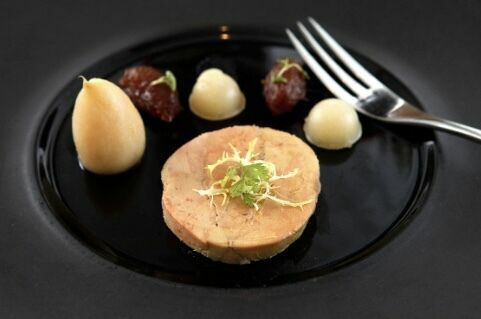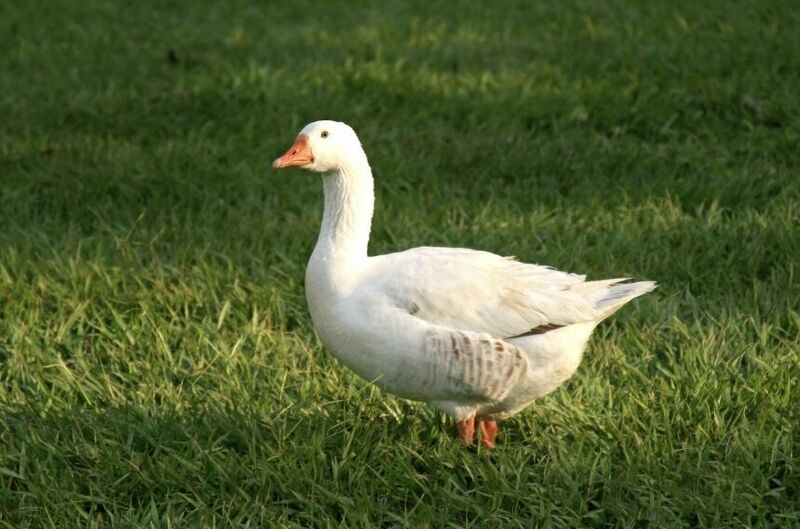Is foie gras halal?
What is foie gras?
Foie gras, which means “fat liver” in French, is a special food made from the liver of ducks or geese that are fattened, traditionally through a method known as gavage, or force-feeding.

An Islamic perspective on a controversial delicacy
While foie gras is prized in fine dining, it has also become a subject of ethical debate, particularly concerning animal welfare. For Muslims, who are committed to consuming only what is halal (permissible), the question arises: is foie gras halal? Traditionally, foie gras is made by force-feeding ducks or geese to enlarge their livers. This process can be cruel and inhumane, making it both unethical and haram. However, with advances in science and technology, alternative methods now exist to produce foie gras without involving animal cruelty. This article explores the issue in depth, using evidence from the Quran and hadith.
Basic criteria for halal meat in Islam
To determine whether foie gras is halal, we must first start with understanding the general principles of what makes meat consumption permissible in Islam. The conditions include:
1. The animal must be from a halal species.
2. The animal must be slaughtered according to Islamic law.
3. The animal should be in a healthy state at the time of slaughter.
4. The animal must be treated with kindness and not subjected to unnecessary suffering.
The Quran says:
ـٰٓأَيُّهَا ٱلَّذِينَ ءَامَنُوا۟ كُلُوا۟ مِن طَيِّبَـٰتِ مَا رَزَقْنَـٰكُمْ وَٱشْكُرُوا۟ لِلَّهِ إِن كُنتُمْ إِيَّاهُ تَعْبُدُونَ
“O you who believe! Eat of the good things that We have provided for you and be grateful to Allah, if it is indeed Him that you worship.”
(Surah Al-Baqarah, 2:172)
Here, the term “good things” (toyyibat) refers to food that is not only lawful but also wholesome, clean, and ethical. This dual requirement—halal and toyyib—is central to Islamic dietary laws.
Animal welfare: A core Islamic principle
Islam places great emphasis on the humane treatment of animals. The Prophet Muhammad s.a.w. taught us that kindness to all living beings is a mark of faith.
He s.a.w. said:
إِنَّ اللَّهَ كَتَبَ الإِحْسَانَ عَلَى كُلِّ شَىْءٍ فَإِذَا قَتَلْتُمْ فَأَحْسِنُوا الْقِتْلَةَ وَإِذَا ذَبَحْتُمْ فَأَحْسِنُوا الذَّبْحَ وَلْيُحِدَّ أَحَدُكُمْ شَفْرَتَهُ فَلْيُرِحْ ذَبِيحَتَهُ
“Verily, Allah has prescribed excellence (ihsan) in all things. If you slaughter, then slaughter well. Let each one of you sharpen his blade and spare suffering to the animal.”
(Sahih Muslim)
This hadith is critical when evaluating the foie gras preparation and production process. Traditional gavage involves force-feeding the duck or goose large amounts of corn mash through a tube inserted down the animal’s throat. This process can lead to stress, liver disease, and suffering, clearly contradicting the Islamic value of ihsan. Yet, it is important to note that not all foie gras is produced the same way. There are farms—particularly small-scale or organic ones—that claim to use more natural and less invasive feeding methods, such as allowing birds to overfeed voluntarily in preparation for migration, which is of their natural behaviour. If the method used does not cause harm, then the meat cannot automatically be declared haram.
Health of the animal at slaughter
Islamic law requires that the animal is healthy and free from serious disease at the time of slaughter. The Prophet s.a.w. said:
أَرْبَعٌ لاَ تَجُوزُ فِي الأَضَاحِي الْعَوْرَاءُ بَيِّنٌ عَوَرُهَا وَالْمَرِيضَةُ بَيِّنٌ مَرَضُهَا وَالْعَرْجَاءُ بَيِّنٌ ظَلْعُهَا وَالْكَسِيرُ الَّتِي لاَ تَنْقَى
“Four (types of animals) should be avoided in sacrifice: A one-eyed animal which has obviously lost the sight of one eye, a sick animal which is obviously sick, a lame animal which obviously limps and an animal with a broken leg with no marrow.”
(Sunan Abi Dawud)
Foie gras production involves inducing liver steatosis (fatty liver), which is technically an unhealthy or abnormal condition. However, scholars debate whether this condition counts as a disease under Islamic law. If the animal remains active, shows no sign of pain, and its overall health is not compromised before slaughter, some scholars argue that the meat remains lawful. This is similar to how animals can be bred or fed to grow certain traits (like size or features) without violating halal guidelines—which is okay in Islam, as long as the animal is healthy and well alive before the slaughter takes place.
Understanding toyyib (goodness) and taqwa (God-consciousness) in the context of foie gras
The permissibility of foie gras in Islam extends beyond just meeting the technical requirements of dhabihah (Islamic slaughter). The concept of toyyib (ethical, wholesome) must also be observed. While some express concerns about the production methods, others note that if the process ensures animal welfare and avoids cruelty, it can be considered permissible.
A critical Islamic principle is that of niyyah (intention) and taqwa (God-consciousness). Muslims are encouraged to reflect not only on whether something is technically permissible, but also whether it aligns with the spirit of Islamic ethics.
فَكُلُوا۟ مِمَّا ذُكِرَ ٱسْمُ ٱللَّهِ عَلَيْهِ إِن كُنتُم بِـَٔايَـٰتِهِۦ مُؤْمِنِينَ
"So eat of that [meat] upon which the name of Allah has been mentioned, if you are believers in His verses."
(Surah Al-An'am,6:118)
Modern alternatives: A path to ethical foie gras?
Recent scientific developments and innovative farming practices have opened new possibilities for producing foie gras in ways that may better align with Islamic principles of animal welfare.

Natural feeding methods
Research has shown that foie gras can be produced without force-feeding, and by instead, working with birds' natural feeding patterns. Farmers in Spain have developed methods that allow geese and ducks to feed voluntarily, particularly during pre-migration periods when they naturally store fat. This approach respects the natural instincts Allah s.w.t. has placed within these creatures, recognising that animals too are communities in their own right. When the companions of Prophet Muhammad s.a.w. asked if they will be rewarded for showing kindness to the animals, he s.a.w. said:
فِي كُلِّ كَبِدٍ رَطْبَةٍ أَجْرٌ
"A reward is given in connection with every living creature".
(Sahih Al-Bukhari and Muslim)
Scientific Innovations
German researchers have found ways to replicate the texture of traditional foie gras without force-feeding, using livers from normally-raised birds. From an Islamic perspective, this scientific innovation could be preferable as it:
1. Eliminates the need for force-feeding.
2. Uses only halal ingredients (natural enzymes).
3. Maintains the dignity of the animal during its life.
4. Still requires proper dhabihah (Islamic slaughter) for the bird.
Some companies have also developed methods to make foie gras by mixing the livers of ducks and geese that are raised freely (not confined) with fat cells. This combination helps them produce a product with a texture and quality similar to traditional foie gras, without using force-feeding. While these alternatives often come at a higher price point, they offer Muslims a way to enjoy this delicacy while better adhering to Islamic principles of animal welfare.
Islamic perspective on alternative methods
When observed properly, these developments align with the Islamic concept of 'ihsan' (excellence), which promotes acting with the highest standard of care and compassion in every situation. This principle of excellence, as established in the hadith above, extends beyond the basic requirements of halal consumption to encompass our choices within permissible options. While Muslims are obligated to consume only halal food, there remains a choice between different halal alternatives available in the market. Islam encourages believers to exercise ihsan by selecting options that uphold the highest standards of ethical treatment toward Allah's creatures. While these superior halal alternatives may come at a higher cost, this price represents a meaningful and commendable way of fulfilling Allah's command to act with excellence in our food choices.
Your halal foie gras checklist
In conclusion, foie gras can be halal, but under specific conditions:
- The bird must be halal by species.
- The method of slaughter must follow Islamic law.
- The animal must not be diseased or suffering at death.
- The feeding process must avoid cruelty and be in line with Islamic animal welfare principles.
- Tip: Look for a halal logo when buying foie gras (and any other meat products!).
Muslim consumers are encouraged to seek ethical sources and make informed choices, embodying both the legal and moral spirit of halal.
And Allah knows best.
Read: Common questions about halal and halal certification in Singapore
References
1. 4 January 2022. FoodUnfolded. The Ethics of Foie Gras
2. 25 March 2025. New scientist. Foie gras made without force-feeding thanks to molecular mimicry
Articles on Muslim.Sg may be reproduced electronically or in print with prior permission from Muslim.Sg. Proper credit must be given to the author(s) and Muslim.Sg.

